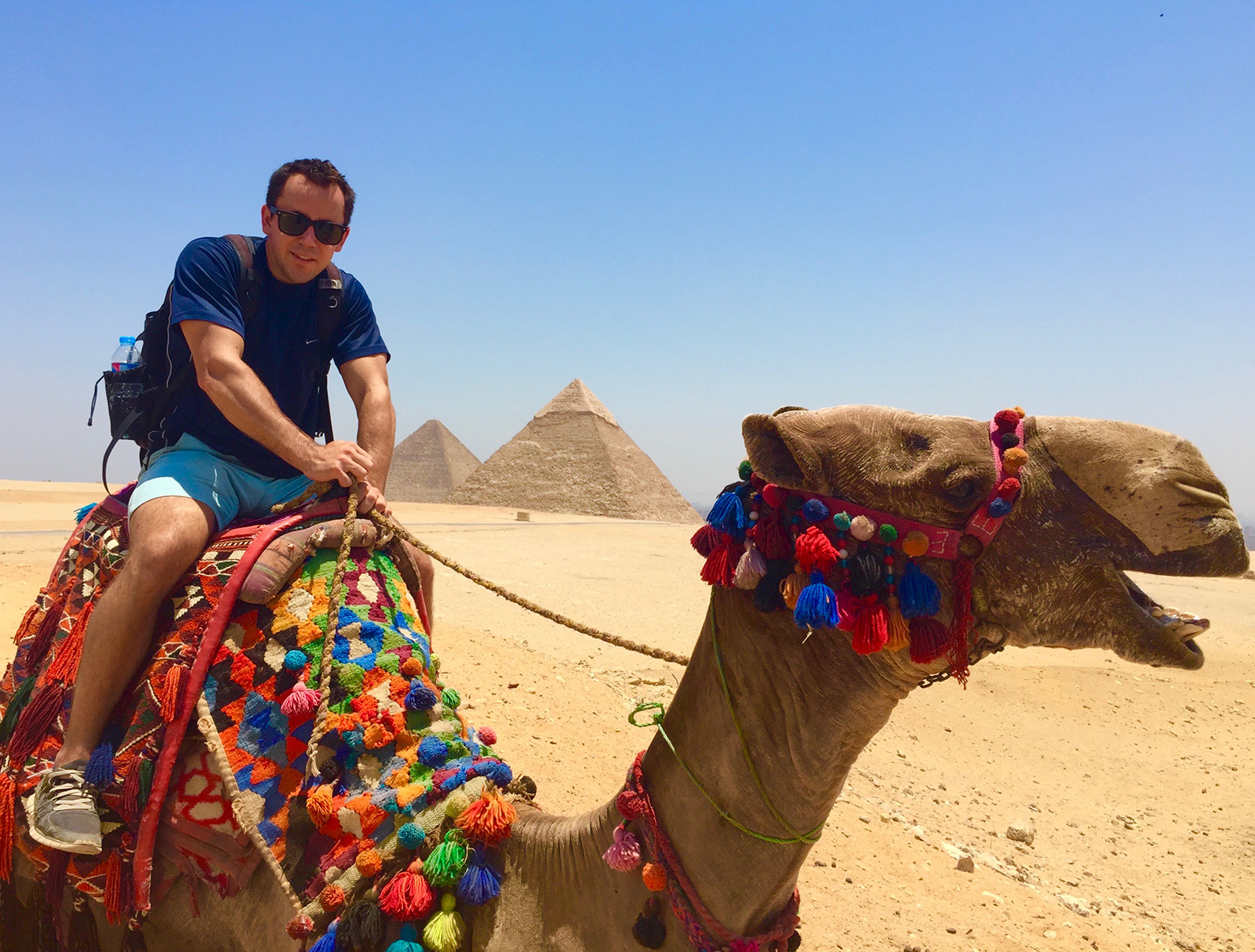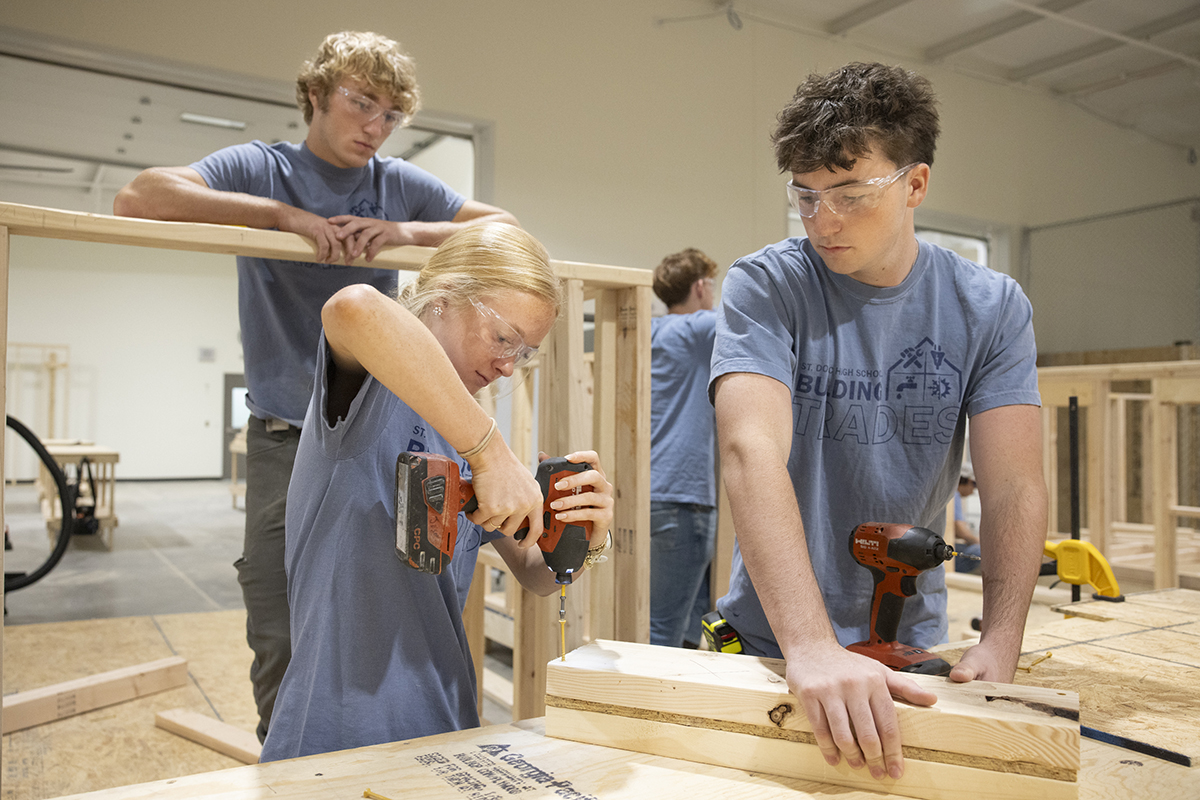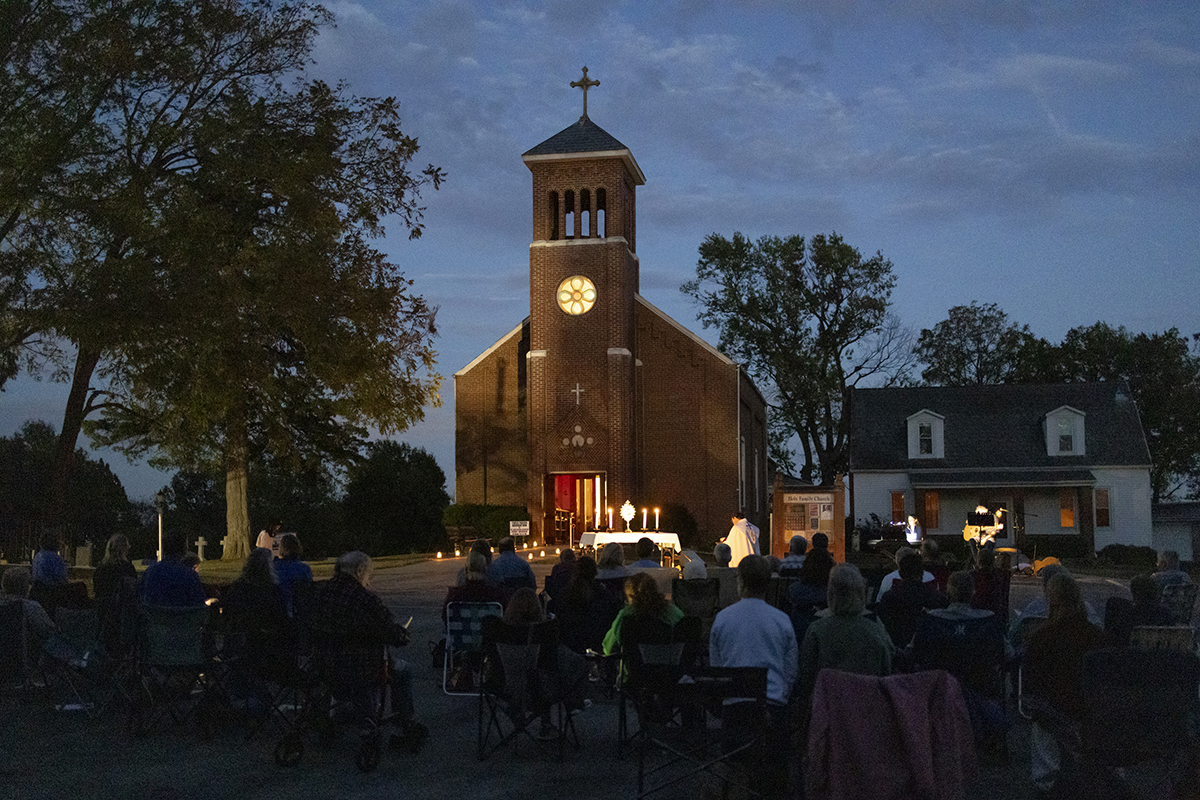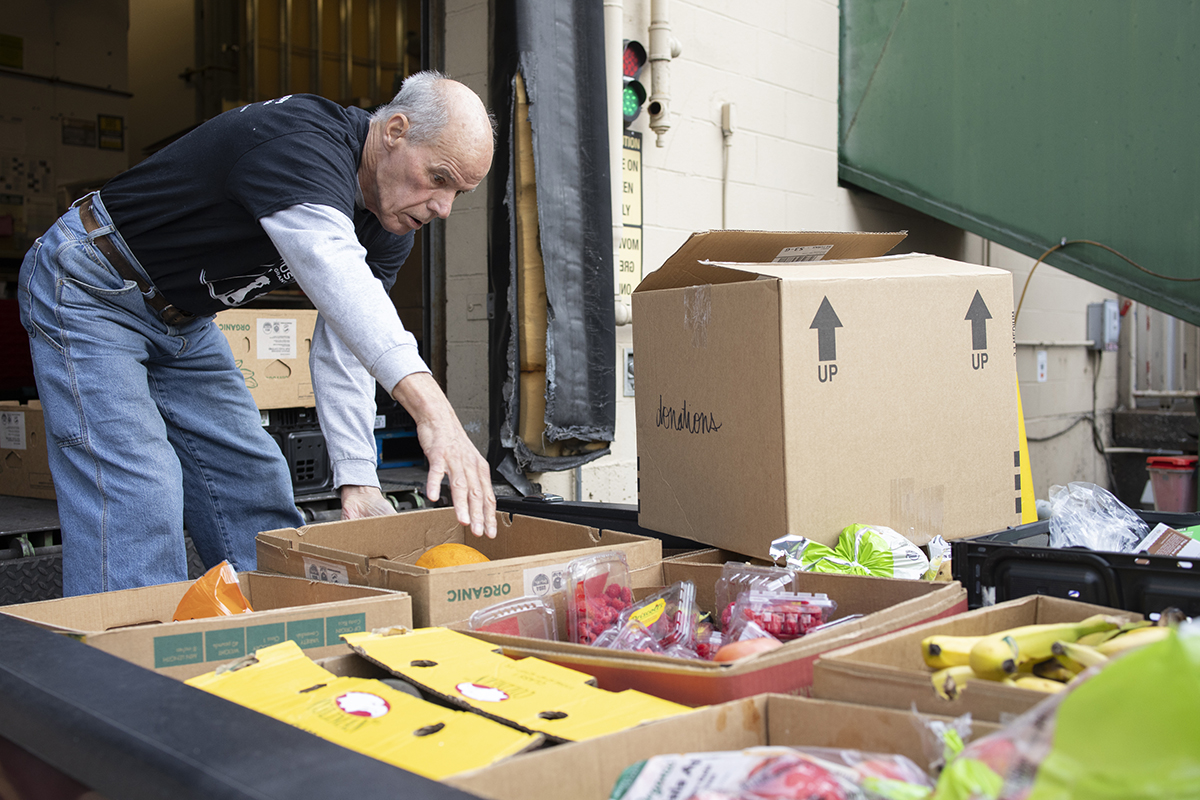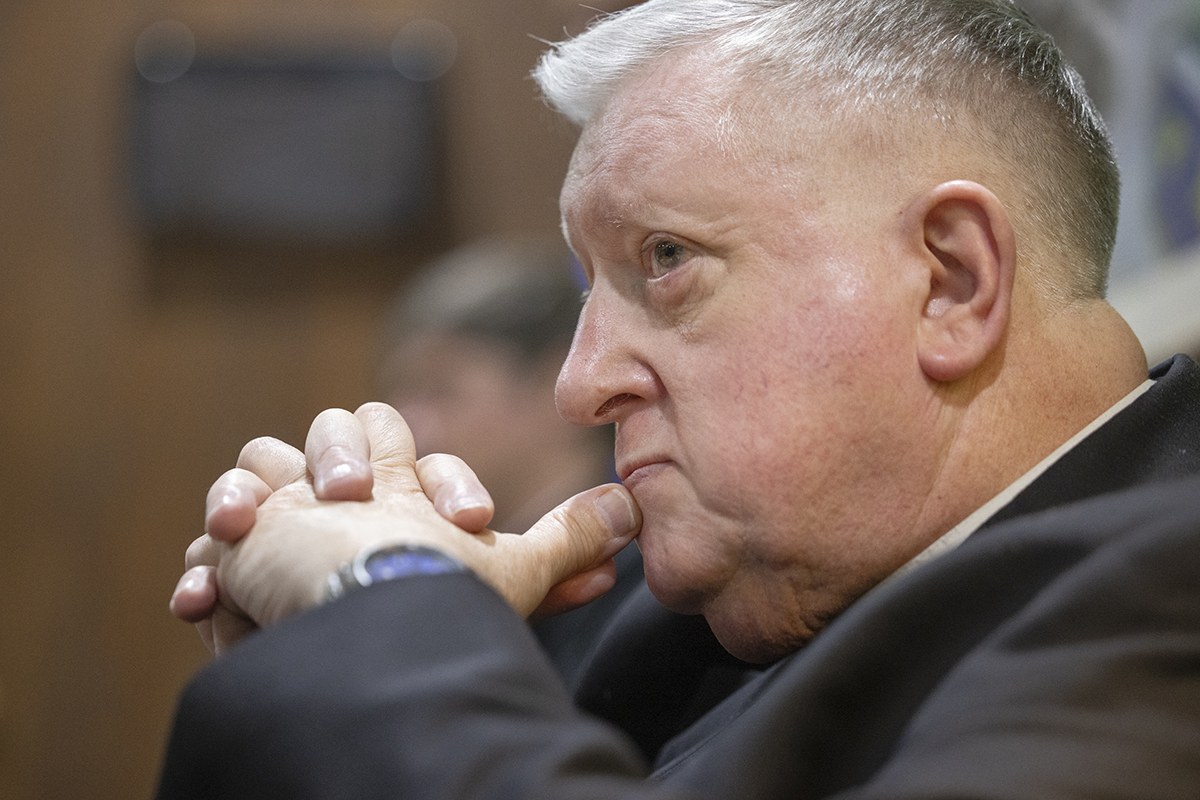Finding Sam: Sam Goodwin shares the faith lessons he learned while imprisoned in Syria
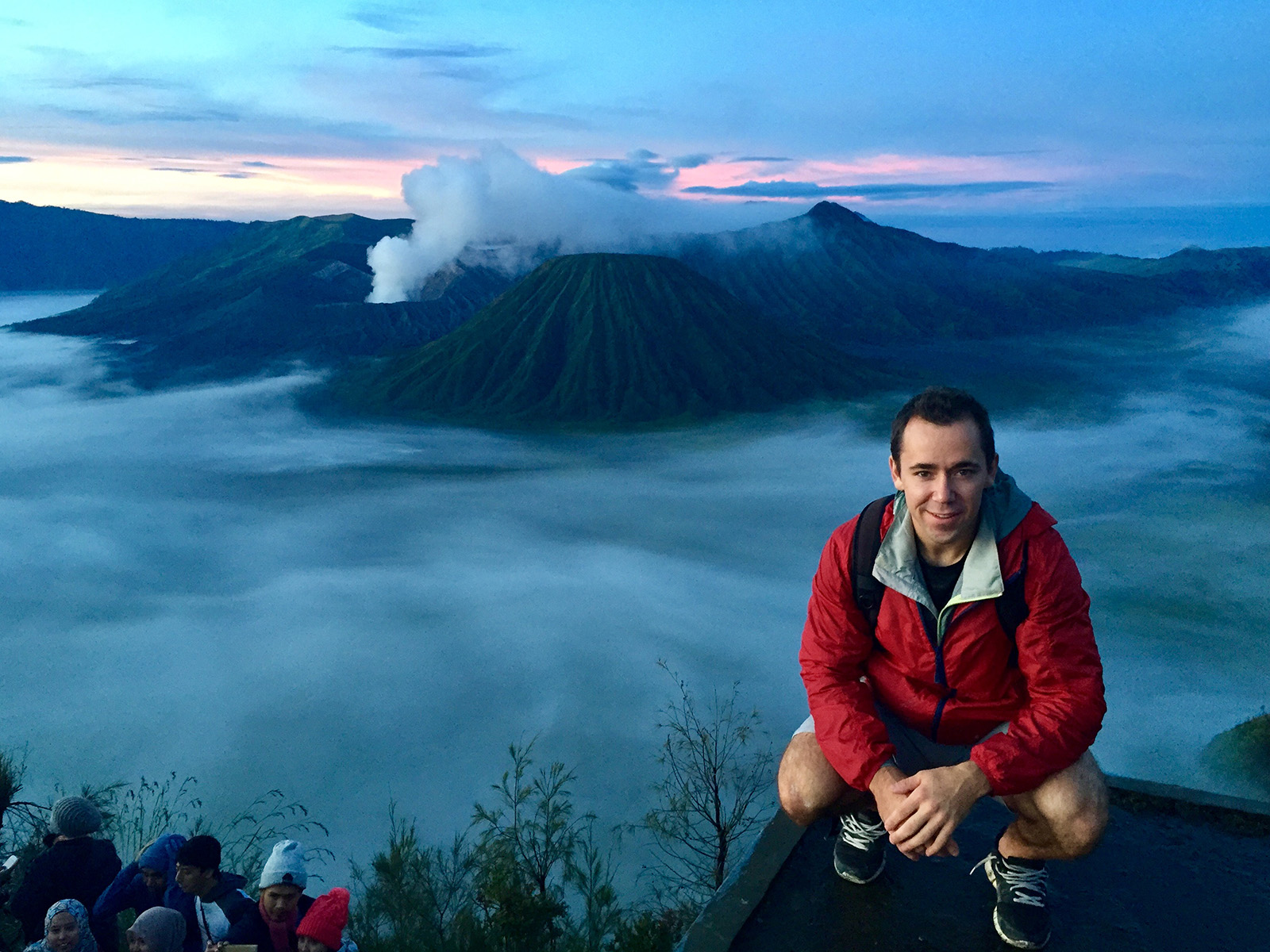
Sam Goodwin says that his captivity taught him how to take control of what he can and turn the rest over to God
Sam Goodwin stepped out of a hotel in Qamishli, Syria, to meet a travel guide on a warm afternoon in May 2019 when he was suddenly stopped at a military checkpoint. Instead of spending the day exploring the Kurdish-controlled city near the border of Turkey, Sam was detained, later to be handcuffed and driven about 12 hours away to Damascus.
There, authorities placed him alone in a small, windowless room in Branch 215, a detention center so notorious for executions and torture it’s been dubbed “the Branch of Death.” Inside the darkened room, he had only a small blanket to lie on on the concrete floor. He had very little interaction with others, only the sounds of prisoners around him as they were tortured. A guard brought Sam a boiled potato or a piece of bread and water every morning and evening.
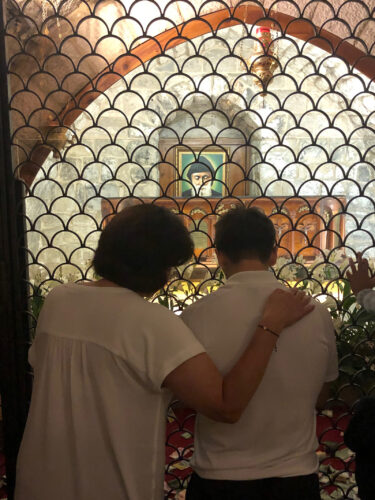
The isolation and uncertainty psychologically and emotionally tortured him. “What was going through my mind were all of these potential outcomes that were possible,” he said. “Will I be in this cell forever? Was I going to be released in five minutes or a week? Will they shoot me or torture me or stop feeding me?”
Sam is the kind of traveler who will go places others wouldn’t dare. Syria was going to be no different. But he’s been asked the question before: Why risk traveling to a war-torn country that brings with it risks of being imprisoned, taken hostage or worse?
“One of the most significant things I’ve learned through my travels is that the places in the world that are negatively perceived or that Western media says we’re supposed to avoid, these were the places that I had many of my best experiences and meaningful impact,” he said. In Syria, “I was confident the same was going to be the case. Travel has always been about learning and the best education I’ve ever had.”
In a nearly 10-year endeavor to visit all 193 U.N.-recognized sovereign countries, Sam spent a week in North Korea helping train its national hockey team. (His trip took place about a year before the U.S. banned travel there in 2017.) In Kabul, Afghanistan, he helped friends teach a group of local volleyball coaches. He visited the Leptis Magna ruins in Libya, where Sam’s guide said he was “quite sure” he was the only tourist in the country.
Along his travels, Sam also found evidence of God’s presence. A native St. Louisan who grew up in St. Clement of Rome Parish in Des Peres and a 2007 graduate of De Smet Jesuit High School, he visited many Catholic churches during his travels. He’s been to Mass in at least 65 countries and has visited churches in about 115 nations. But it was the people he encountered along the way that had the greatest impact, he said.
“Everywhere I went in the world, I found people who are just like us,” he said. “We are all fundamentally the same. The overwhelming majority of people in the world are well-intentioned, proud of their country and happy to help others.”
Sam also encountered God in Syria, where he was imprisoned for 63 days.
“I found myself in a situation where everything had been taken from me: my communication, my material possessions, my freedom,” he said. “But no matter what, I knew, given my upbringing — thanks to my parents and the people I had surrounded myself with — I knew that my faith was absolute. That could not be taken from me. I didn’t need a phone or permission from the guards to talk to God.”
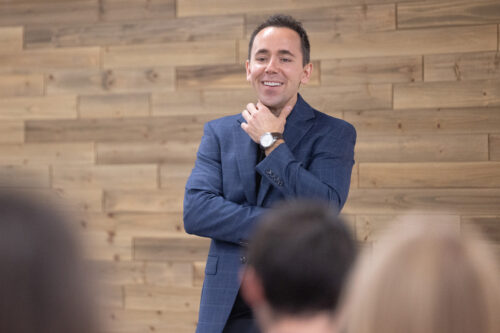
Imprisonment
By the time he reached Syria, Sam had already visited 181 countries. In 2012, he moved to Singapore, where he helped start ShiftRunner, a tech startup business, and a regional NGO, the Pandoo Foundation, to engage young people throughout Asia in leadership and other endeavors. He had what he described as the “best airport in the world in my backyard” and took advantage of the opportunity to travel.
Sam was experienced in making travel arrangements, especially in places considered dangerous by the U.S. State Department, which suspended operations of its embassy in Damascus in 2012. He had secured permission to enter the country from U.S.-backed Kurdish authorities, which controls areas in northeastern Syria.
He traveled into the country via Iraq and landed in the Syrian town of Qamishli, where he checked into the Asia Hotel. On his way to meet the guide, he made a wrong turn and walked into a checkpoint, where Syrian authorities apprehended him.
Accused of espionage, he was placed in solitary confinement in Branch 215 detention center in Damascus, which has thousands of documented cases of executions and torture, according to Human Rights Watch and a 2021 U.N. report on detention conditions in Syria.
During his confinement, Sam turned to prayer, which became an uninterrupted conversation with God. As he paced back and forth in his cell, “I said, ‘God, I’m here. I’m listening. What are you trying to tell me today? What can I learn today? What are the positives about my situation today?’”
As he heard the sounds of prisoners being tortured, Sam petitioned God to keep him safe and the situation as peaceful as possible. He prayed the Rosary, using his fingers as beads and offering each decade for a different intention: his family and friends, for those he thought would be working to get him out of prison, for peace in Syria and in the world and for the courage to forgive his captors.
“I discovered that I was working to forgive people who weren’t even sorry,” he said. “That took some real strength. Forgiveness, I found, is not a feeling — it’s a choice.”
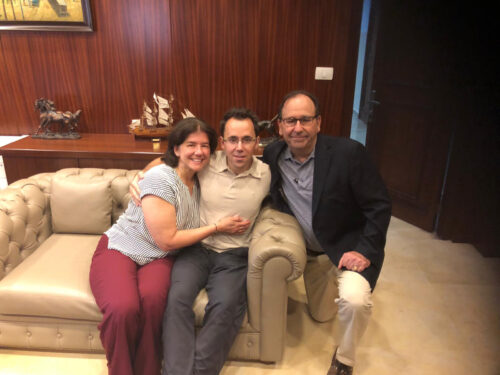
Rescue efforts
About halfway through his captivity, Sam was transferred to Adra Prison on the northeast outskirts of Damascus. There, he was placed with about 40 men, some of whom he befriended and maintains contact with. They taught him Arabic while he taught them English. One of the prisoners helped him smuggle a communication to his family, which eventually reached Sam’s father, Tag, in St. Louis. (The Goodwins were initially warned that it was likely a hoax.)
Meanwhile, Sam’s family was piecing together what had happened to their son. They reached out to U.S. officials and petitioned the Vatican for assistance. A priest friend helped the Goodwins connect with Rome and eventually with Cardinal Mario Zenari, the apostolic nuncio in Syria.
About three weeks into his captivity, Sam’s younger sister, Stephanie McCue, hit a low point. The Goodwins still didn’t know Sam’s whereabouts or whether he was alive. Stephanie called a former college roommate, Stephanie Hajjar, to unload.
“She says, ‘Is there anything I can do, Steph?’ Kind of as a joke, I said, ‘Unless you know someone connected to (Syrian President Bashar) Assad, all you can do is pray.’ She’s like, ‘Hold on, let me call you back.’”
Stephanie Hajjar’s uncle Joseph Abbas, who lives in Connecticut, is a former Lebanese military officer and was friends with Maj. Gen. Abbas Ibrahim, then Lebanon’s top security official. After conversations between the two families, the Goodwins received confirmation from him that Sam was being detained in Damascus.
“That was monumental,” Stephanie McCue said. “We didn’t know if he was dead or kidnapped. We thought he might be in hands of the government but weren’t sure.”
Just two days before his release on July 26, 2019, Sam’s mother, Ann Goodwin, and his sister Betty attended Mass at St. Mary Magdalen Church in Brentwood. It was the feast of St. Charbel, a 19th-century Maronite monk and patron saint of Lebanon. In his homily, Msgr. James Ramaciotti mentioned the tens of thousands of miracles attributed to the saint. He then told the congregation: “So if anybody here needs a miracle, pray to St. Charbel.”
Several hours later, Joseph confirmed that Sam’s release had been granted and Lebanese officials were bringing him to Beirut to be reunited with his parents. Before returning to the U.S., Sam and his parents visited St. Maroun Monastery in Annaya, Lebanon, which houses the tomb of St. Charbel.
Stephanie was in New York for a wedding when she learned her brother was being released. She stepped outside and sobbed when she heard the news. “It felt like God was so close, and He had done a miracle for us,” she said. “It was extremely overwhelming.”
Stephanie leaned on her faith in a way she never had before, going to daily Mass and spending much time praying. When she came home from Nashville to be with family in St. Louis, she visited the adoration chapel at St. Clement of Rome.
“It was my only course for peace and hope,” Stephanie said. “I was thinking of the hope of eternal life, that no one is meant to be on this earth forever — as I was thinking about the worst-case scenario — and of God’s promise of salvation. It’s very apparent that God’s hand was in this and that Sam and all of us have this responsibility with this second life he’s been given.”
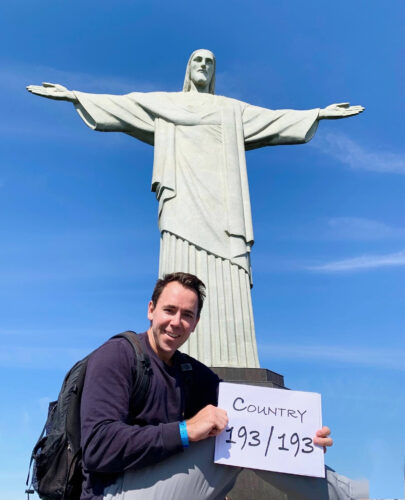
Lessons learned
Since his return to the U.S., Sam returned to school and earned a master’s degree at Washington University in St. Louis. He later moved to Washington, D.C., where he completed a doctorate at Johns Hopkins School of Advanced International Studies in May.
He now shares his story with audiences worldwide, diving into themes of resiliency and embracing uncertainty. In September, he released a book, “Saving Sam: The True Story of an American’s Disappearance in Syria and His Family’s Extraordinary Fight to Bring Him Home.”
“Sometimes I say I don’t feel so much survivor’s guilt as I do survivor’s responsibility,” he said. “I view the world with a spiritual lens, and I feel like I was put in this situation for a reason. I believe that God gave me this for a reason.”
Sam said his captivity taught him how to lean into gratitude, to take control of the things he could control in the situation, no matter how small, and to turn the rest over to God.
“I don’t want to be known for the things that happened to me — I want to be known for the way I’ve responded to them,” he added. “I hope that others will take the same approach to their own challenges in their own lives. I think that when we feel the most lost, we have the best chance for a huge breakthrough.”
Throughout his ordeal, Sam said he felt a closeness to God that he had never felt before and, admittedly, has struggled to replicate now, more than five years after his imprisonment.
“I would challenge all of us to think about the time when we felt the closest to God and what it would take to replicate that,” he said. “I have found that we’re never less alone than when we’re totally alone with God.”
Sam didn’t lose his passion for travel. In December 2019, he made it to his final country, Brazil, where he stood before the Christ the Redeemer statue in Rio de Janeiro.
